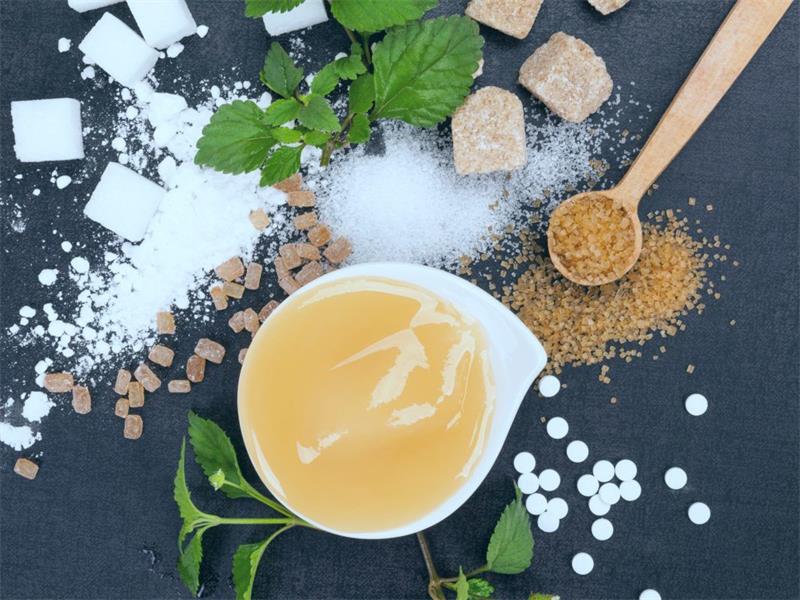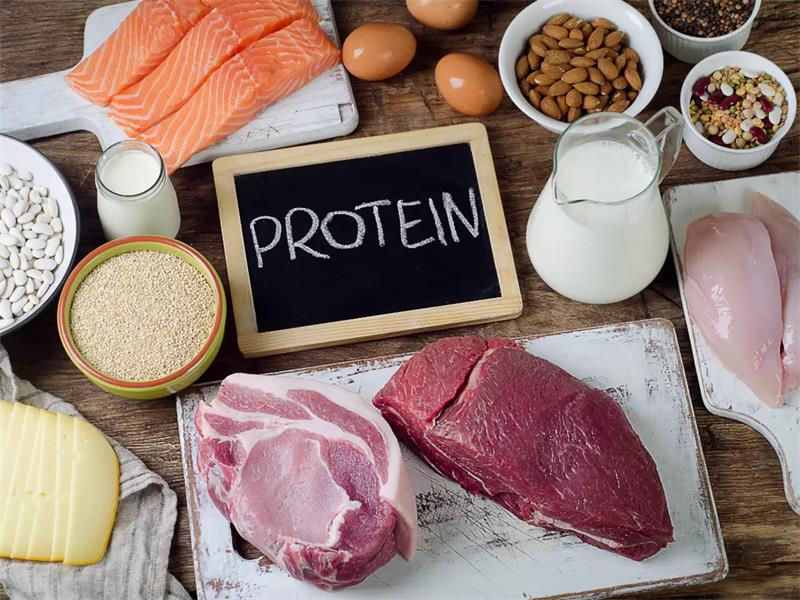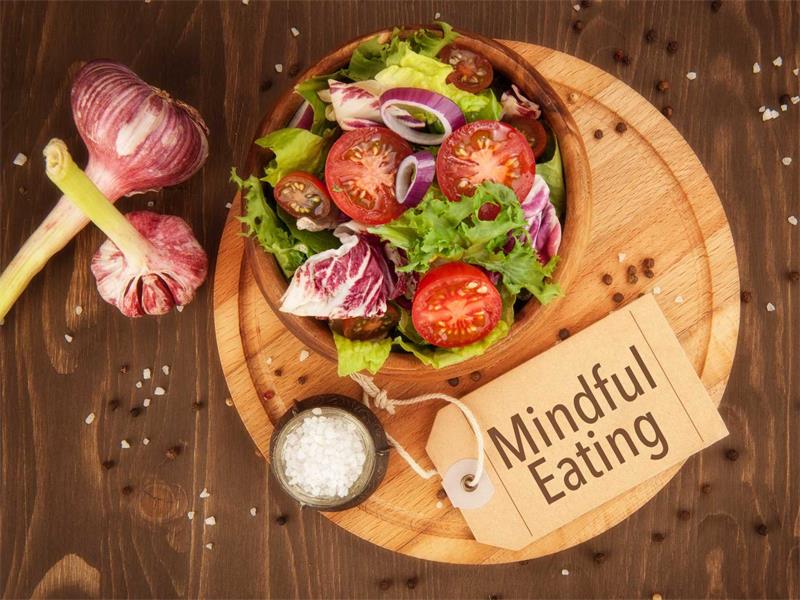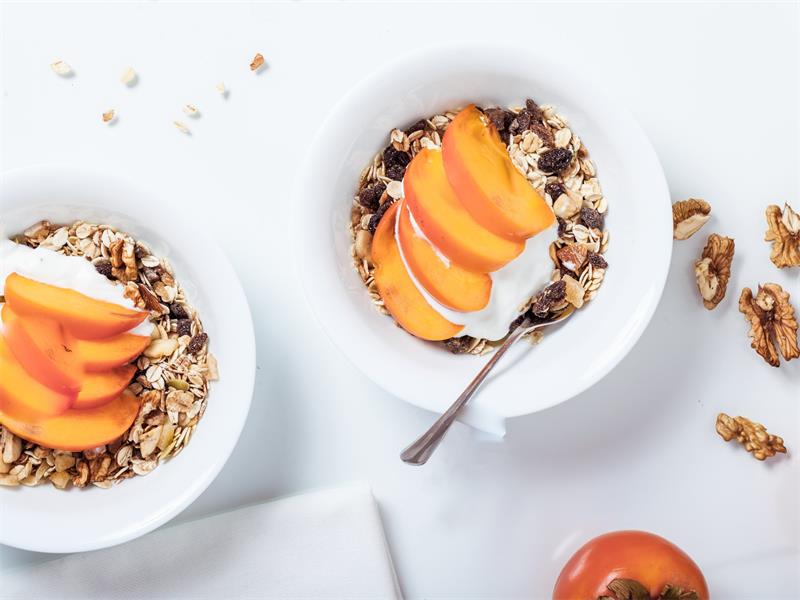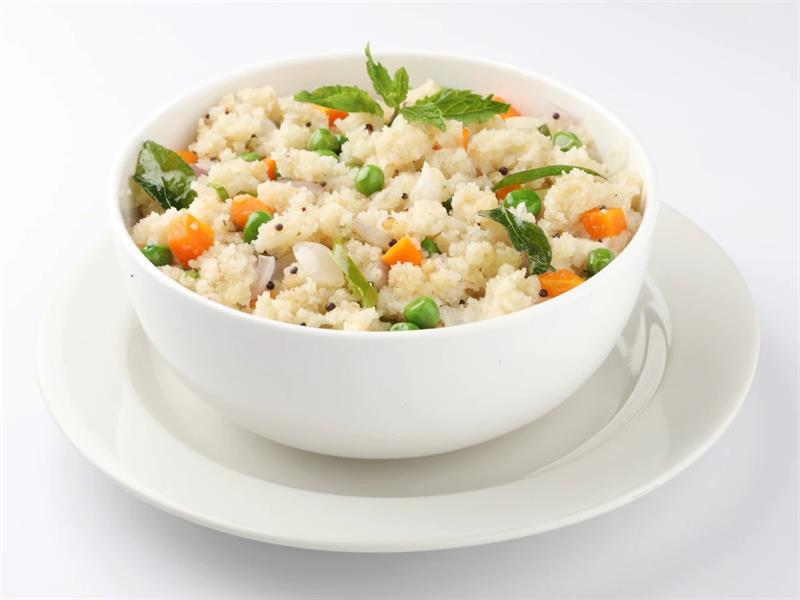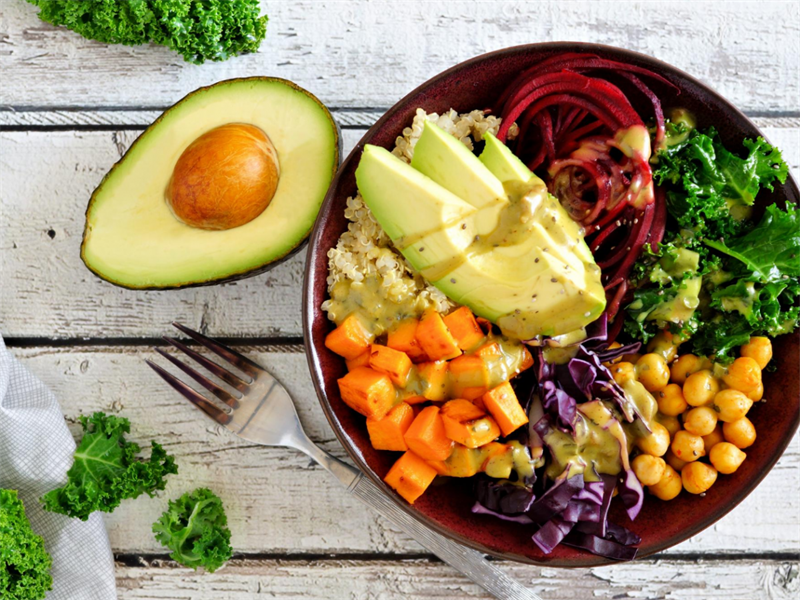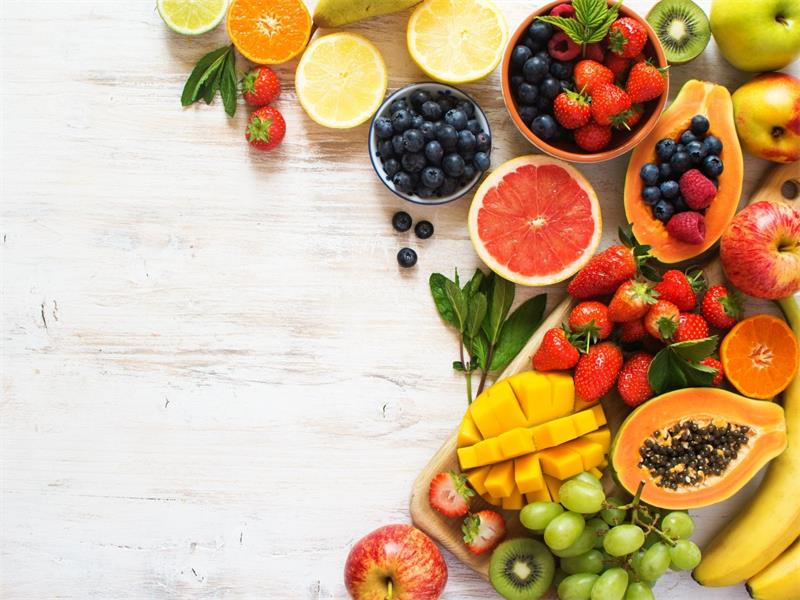Contents
The Bitter Truth About Sweeteners
Introduction
Artificial sweeteners and sugar substitutes are widely used in our foods and drinks as replacements for sugar. These products are marketed as a healthier alternative to regular sugar because they have fewer calories and a lower glycemic index.
Artificial sweeteners such as saccharin, aspartame, sucralose, and neotame have been around for decades, while newer ones such as acesulfame potassium (Ace-K) and advantage have also emerged. Sugar substitutes like xylitol, erythritol, and maltitol are also popular because they provide the same sweetness without the added calories.
The popularity of these products in the market has skyrocketed in recent years due to the increasing awareness of obesity and diabetes epidemics. People are trying to reduce their sugar intake without sacrificing the taste or pleasure associated with consuming sweets.
Many food companies have jumped on the bandwagon by producing diet drinks, low-calorie snacks, protein bars, and chewing gums that contain artificial sweeteners or sugar substitutes. However, do these products deliver what they promise?
Are they really healthier than regular sugar? In this article, we will delve into the dangers associated with consuming artificial sweeteners and sugar substitutes so that you can make an informed decision about what you put into your body.
The Risks of Artificial Sweeteners
Do You Know What You’re Consuming?
Artificial sweeteners have been around for decades and are commonly used as a sugar substitute. They are popular among people who are trying to lose weight or control their blood sugar levels. However, what many people do not realize is that consuming artificial sweeteners may be putting their health at risk.
Artificial sweeteners can cause a range of health problems such as headaches, nausea, and digestive issues. They have also been linked to more serious health problems such as cancer, diabetes, and heart disease.
Studies Reveal the Dangers
Studies have shown that consuming artificial sweeteners can lead to various health problems. One study found that consuming aspartame, an artificial sweetener commonly used in diet soda, can increase the risk of developing certain types of cancer like lymphoma and leukemia.
Another study found that consuming sucralose, another popular artificial sweetener used in many food products including chewing gum and baked goods, can negatively impact gut bacteria. This disruption in gut bacteria has been linked to obesity and other chronic diseases.
Health Risks Associated with Consuming Artificial Sweeteners
In addition to the risks mentioned above, there are other potential health risks associated with consuming artificial sweeteners. For example: – Aspartame has been linked to migraines
– Saccharin has been linked to bladder cancer – Acesulfame potassium (Ace-K) may affect insulin secretion
The long-term effects of consuming these chemicals are still unknown which makes it difficult for experts to fully understand the extent of the risks involved. Given these health risks associated with artificial sweeteners consumption in large amounts should be avoided whenever possible.
The Dangers of Sugar Substitutes
Overview of Different Types of Sugar Substitutes and Their Potential Risks
Sugar substitutes, also known as artificial sweeteners, are chemicals that are added to food and drinks to provide sweetness without adding calories. There are several different types of sugar substitutes available on the market today, including aspartame, saccharin, and sucralose.
These sugar substitutes have become incredibly popular in recent years as more people look for ways to cut back on their sugar intake. However, despite their popularity, many experts warn that these types of sweeteners could be dangerous to our health.
Aspartame is a commonly used artificial sweetener that is found in many diet sodas and other low-calorie products. Some studies have linked aspartame consumption to a variety of health problems including headaches, seizures, and even cancer.
Similarly, saccharin has been linked to bladder cancer in some animal studies. While it is unlikely that the amount of saccharin found in most products would be harmful to humans, it still raises concerns about the long-term effects of consuming large amounts over time.
Negative Effects on the Body from Consuming Large Amounts of Sugar Substitutes
In addition to potential health risks associated with specific types of sugar substitutes, there are also negative effects on the body from consuming large amounts over time. For example, consuming too much sucralose can lead to digestive issues such as bloating and diarrhea. Additionally, many people experience cravings for sweets when they consume artificial sweeteners regularly because they do not provide the same level of satisfaction as real sugar.
Furthermore, research has shown that consuming artificial sweeteners can actually lead to weight gain rather than weight loss because they may disrupt the body’s natural ability to regulate calorie intake. This is because these sweeteners trick your brain into thinking you are consuming something sweet and sugary, which can cause cravings for more food.
This can lead to overeating and ultimately weight gain. It is clear that sugar substitutes pose a significant risk to our health.
From specific health concerns associated with certain types of sweeteners to negative effects on the body from consuming large amounts over time, it is important that we are aware of these dangers when choosing what we consume. While it may be tempting to opt for low-calorie options, the potential health risks should not be taken lightly.
Hidden Sources of Artificial Sweeteners and Sugar Substitutes
Common Foods and Drinks that Contain Artificial Sweeteners or Sugar Substitutes
Artificial sweeteners and sugar substitutes are not only found in diet drinks but also in a wide variety of other foods such as baked goods, snacks, yogurts, and even some medications. Some common culprits include sugar-free gum, flavored oatmeal packets, low-fat yogurt with fruit added, protein bars, and sports drinks. Checking the ingredients list carefully is key to avoiding those hidden sources.
Tips for Identifying Hidden Sources in Food Labels
Reading the packaging of food products can be a daunting task because manufacturers often use different names for artificial sweeteners or sugar substitutes. Sometimes they can be labeled as “sugar alcohols” or by their brand names like Splenda or Equal. Here are some tips to help you spot them:
1. Check the ingredients – look for any words on the label that end with “-ose” (like fructose) or “-ol” (like sorbitol), these are often indicators that there’s an artificial sweetener present. 2. Look for code numbers – sometimes the name of an artificial sweetener may not appear on an ingredients list but instead could be identified by its E number (for example E951 is aspartame), so keep an eye out for those.
3. Be cautious of “sugar-free” claims – foods labeled as “sugar-free” might still contain other types of sugars such as fructose syrup or honey which can still have a significant impact on your health. 4. Choose whole foods – When it comes to healthy eating, choosing whole foods rather than processed ones is always a good idea because you know what you’re putting into your body without having to read ingredient labels painstakingly.
By being more aware of the hidden sources of artificial sweeteners and sugar substitutes, you can make more informed choices about what you eat. Remember to read food labels carefully and choose whole foods as much as possible.
Natural Alternatives to Artificial Sweeteners and Sugar Substitutes
Introduction to natural alternatives such as honey, maple syrup, and stevia
If you’re looking for an alternative to the synthetic taste of artificial sweeteners or sugar substitutes, natural sweeteners might just be the solution. Honey is a popular choice with a long list of health benefits. This sticky and delicious alternative is said to have antibacterial properties that can help soothe sore throats, heal wounds, and even fight off allergies.
Maple syrup is another natural sweetener that has become increasingly popular over the years. It’s made from sap taken from maple trees and has a rich flavor that can be used in many recipes.
Stevia is yet another option for those seeking a healthy alternative to sugar or artificial sweeteners. This naturally occurring plant-based sweetener has zero calories and is up to 300 times sweeter than sugar!
It’s been used in South America for centuries as a medicinal herb. In fact, it’s said that indigenous people in Paraguay used stevia leaves to sweeten their tea more than 200 years ago.
Benefits of using natural alternatives instead
The benefits of using natural alternatives like honey, maple syrup or stevia are many-fold. Firstly, they don’t contain any synthetic chemicals or harmful additives found in most artificial sweeteners or sugar substitutes which makes them better for your overall health.
Secondly, unlike refined sugars which cause sudden spikes in blood sugar levels followed by crashes that leave you feeling lethargic, these natural alternatives provide sustained energy without any negative side-effects. Maple syrup especially provides additional nutritional value compared to refined sugars – it contains antioxidants and minerals such as zinc and manganese.
Some studies suggest that consuming too much added sugar may increase the risk of obesity-related diseases like heart disease and type 2 diabetes while incidence rates are lower in people who prefer natural alternatives. Additionally, many people find that natural sweeteners simply taste better, which can make sticking to a healthy diet and cutting down on sugar easier.
Substituting artificial sweeteners and sugar with natural alternatives like honey or maple syrup is an easy way to reduce your consumption of processed sugars while still satisfying your sweet tooth. With the added health benefits and richer taste than synthetic options, it’s little wonder why these natural sweeteners have become so popular in recent years.
Conclusion
Recap on the dangers associated with consuming artificial sweeteners and sugar substitutes
After taking a closer look at the potential health risks associated with consuming artificial sweeteners and sugar substitutes, it’s clear that these products can be harmful to our bodies in many ways. From increased risks of diabetes and heart disease to potential damage to our gut microbiome, there are plenty of reasons to be cautious about using these products on a regular basis.
While some people may view artificial sweeteners as a “healthy” alternative to sugar, the truth is that these products can be just as damaging – if not more so – than regular sugar. And while many sugar substitutes are marketed as “natural,” they can still have negative effects on our health when consumed in large quantities.
Encouragement to opt for natural alternatives instead
Thankfully, there are plenty of natural alternatives available that can satisfy your sweet tooth without putting your health at risk. Honey, maple syrup, and stevia are just a few examples of natural sweeteners that you can use instead of artificial or processed sugar substitutes. By opting for natural alternatives, you’ll not only avoid the potential health risks associated with artificial sweeteners and sugar substitutes – you’ll also be supporting sustainable farming practices and local agriculture.
Plus, many natural sweeteners contain beneficial nutrients like antioxidants and vitamins that can actually help improve your overall health. So take some time to experiment with different natural sweeteners in your cooking and baking projects.
Whether you’re looking for something to add to your morning coffee or trying out a new dessert recipe, there’s sure to be a natural alternative that works for you. By making this small but significant change in your diet, you’ll be doing your body (and the planet) a big favor!

